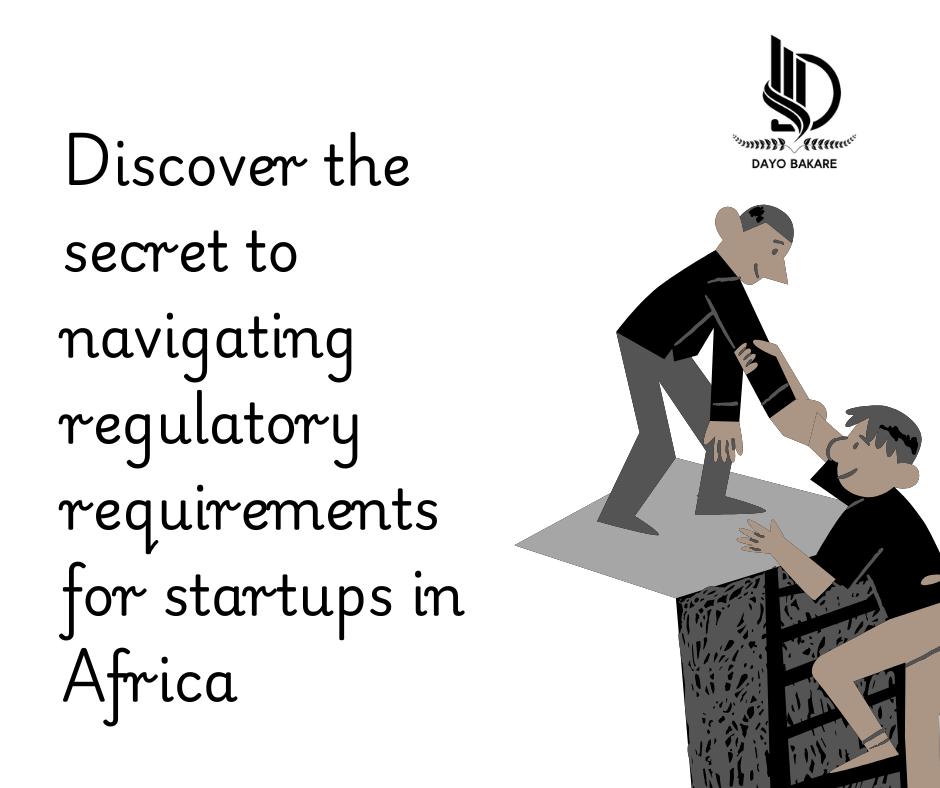The African continent is experiencing a surge in entrepreneurial activity, with startups driving innovation and addressing critical challenges across diverse sectors. However, navigating regulatory requirements remains a significant hurdle for many entrepreneurs. For startups to thrive, they must understand and adapt to the complex and varied legal frameworks across Africa, ensuring compliance while leveraging opportunities for growth.
One of the first steps for startups is to establish their legal identity by registering their business. This process varies across countries, with requirements dictated by national laws. For instance, in Nigeria, startups must register with the Corporate Affairs Commission (CAC), while in Kenya, the Business Registration Service oversees incorporation. Completing this process ensures that startups operate legally, can access funding, and are better positioned to engage with potential partners. However, bureaucratic inefficiencies in some countries can pose delays, underscoring the need for startups to plan for administrative hurdles.
Tax compliance is another key area where startups face challenges. Startups must understand their tax obligations, which may include corporate income tax, value-added tax (VAT), and payroll tax, among others. African governments increasingly recognize the potential of startups to drive economic growth and have introduced tax incentives to encourage entrepreneurship. For example, Rwanda offers favorable tax rates for small businesses, and Nigeria provides tax holidays under the Pioneer Status Incentive for companies in qualifying industries. Startups that take advantage of such incentives can significantly reduce costs, enhancing their ability to scale.
For startups operating in highly regulated industries such as fintech, healthtech, or agritech, sector-specific compliance is critical. Fintech startups, for example, often require licenses from central banks or financial regulators. In Ghana, fintech companies must comply with guidelines set by the Bank of Ghana, while in South Africa, the Financial Sector Conduct Authority (FSCA) regulates financial services providers. Similarly, agritech startups may need to adhere to land-use regulations or environmental standards, depending on their operations. Engaging legal experts or consultants can help startups navigate these specialized requirements efficiently.
The challenges of regulatory compliance are further compounded for startups with cross-border ambitions. Africa’s fragmented trade environment presents hurdles in navigating customs regulations, tariffs, and licensing requirements. However, the African Continental Free Trade Area (AfCFTA) offers a unique opportunity for startups to access a unified market, reducing trade barriers and creating new pathways for growth. Startups must familiarize themselves with the trade frameworks under AfCFTA to maximize their potential for regional expansion.
Intellectual property (IP) protection is another critical consideration for African startups, especially those built on innovation. Registering patents, trademarks, or copyrights can safeguard their ideas and products, but navigating IP laws across countries can be challenging due to inconsistent enforcement. Startups can utilize resources provided by organizations like the African Regional Intellectual Property Organization (ARIPO) to streamline the process and ensure their intellectual assets are protected.
Engaging with policymakers and advocacy groups is essential for startups to influence the regulatory environment positively. Many African governments are working to create more enabling ecosystems for entrepreneurs. For example, initiatives like the Nigerian Startup Act aim to address regulatory challenges and provide support for the tech ecosystem. By participating in such initiatives or collaborating with ecosystem enablers like hubs and accelerators, startups can stay informed about regulatory changes and advocate for policies that foster innovation.
In conclusion, while navigating regulatory requirements in Africa can be complex, it is also a crucial step toward building a sustainable business. Startups that invest time in understanding and complying with regulations gain credibility, reduce risks, and unlock growth opportunities. By leveraging incentives, engaging with policymakers, and seeking expert guidance, African startups can turn regulatory challenges into stepping stones for success in a dynamic and competitive environment.

